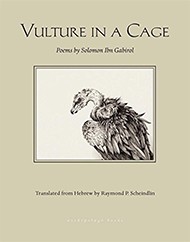There is something more than place that defines home. Explorers know this. Expatriates know this. Refugees of religious persecution, war, and natural disasters also know this to be true. Each new land to which the displaced arrive introduces new traditions, languages, smells and tastes, to the exiled.
In The White Islands,Agosín envisions her spiritual Sephardic ancestors as a sisterhood of shared prayers that coalesce to add a color to the poetic canvases and quickly dissipate, only to reappear with another brushstroke. These poems create a feeling in the reader of a lost but hopeful sailor who moves closer to a new home island just to have her ship drift away into a sudden fog. The poetic sequences are best read straight through, producing a choral effect.
Some of the best metaphors in the collection compare memory to the sense of smell, giving the work a dreamy, even heady quality. The beautiful olfactory details of anise, wine, jasmine, cracked pomegranate, mint, and honey place this book in the edenic islands of the Mediterranean.
The collection has a few arresting moments that highlight its focus on Jewish identity and consciousness. Two verses in the book’s second sequence, Oro’s Keys, strike as particularly haunting. From the poem “I saw them pass by,”: “Sitting incredulous on the banks of the river/They were the children of so many wars/And they congregated in lost dominions/An orphanage in silence.” The poem “The silence enshrouds your face” ends, “And you tell him about the white islands/About the night in Rhodes with the wind galloping/The Jews in the vessels of death.” This dread of a breakdown in hereditary communication and of fundamental survival feels perpetually contemporary.
In an interview with the journal Blackbird, Agosín, who has a complex familial history of exile herself, explains, “I don’t feel that I belong, which is very good for a poet, to feel like a stranger.” This collection allows the reader to take on that feeling of being a stranger, opening the reader’s mind to that of the poet herself. This transferable numinousness makes for powerful, open work. Ultimately, these poems are prayers, archipelagic, of remembrance — and prayers for a new home, shining white, found at sea.





